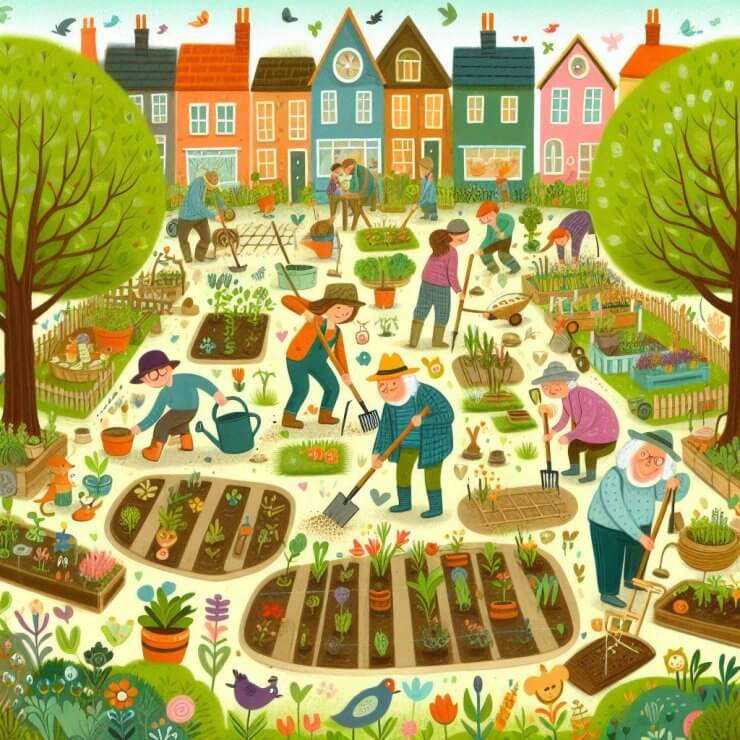Read by Matilda Longbottom

In a local community designed for the over-55 crowd, a hidden gem exists—a community garden where residents can continue to nurture their green thumbs even after downsizing. Within this vibrant garden, two distinct age groups coexist: the “youngsters” aged 55 to 74, and the “old-timers” aged 75 and up. The younger group’s glory days hark back to the sixties and seventies, when hanging out in a garden often meant something quite different from cultivating veggies.
Each resident can secure a sizeable plot—excuse me, “spot”—to grow their favorite produce. The term “plot” is frowned upon for its morbid connotation, with “parcel” or “patch” being preferred. The younger crowd, however, insists on calling it “space”—don’t ask why.
The garden is tucked away in a remote corner of the grounds, accessible only via a winding dirt road full of potholes. As Spring approaches, gardeners eagerly plan their crops for the season. Meetings are held to discuss planting choices, soil conditions, pests, and the ever-present deer. Recently, conversations have also included concerns about security, safety, and accessibility.
Gus, an old-timer who often works alone in his spot, voiced his worry about the garden’s seclusion. He suggested notifying local police and fire departments of the garden’s location in case of an emergency. His proposal was met with an audible sigh from some of the younger gardeners. One member, donning a Grateful Dead T-shirt, softly advised, “Don’t go to the garden alone and bring your phone with you, brother.” Gus’ motion was tabled for further study.
Most gardeners grow traditional crops like tomatoes, cucumbers, squash, zucchini, and various herbs and flowers. Some younger members, however, seem to be conducting experiments with plants that require constant monitoring. These plants are often dug up and transferred to pots at dusk. It seems these newly potted plants might get too high for their garden patches. Where they go from there is a mystery, but their harvesters always seem quite pleased.
At the next meeting, the older gardeners buzzed about medical marijuana. With numerous ailments, they were interested in its potential benefits. New York State had recently approved its sale, but the cost was prohibitive. Gus, having done his homework after the last meeting, asked if they should start planting it in the garden. The president, shaking his head, replied, “It’s still illegal to grow grass in the garden. If we did, neighborhood kids would break in, and the authorities would burn it all down.”
The Grateful Dead fan slouched in his seat. Seventy-five-year-old Mary asked how to grow it, where to get seeds, and if it was a hardy plant. Josie, using her walker for support, declared she didn’t care about the cost and was all for it. Hannah argued that legalization would make everyone grow grass in their yards, negating the need for break-ins. The room erupted in agreement, canes waving in the air.
Someone then asked, “Does anyone still want to tell the fuzz where we are?” A resounding “Nay” filled the room. The president whispered to the secretary, “I think we should adjourn the meeting—make a motion.” She replied, “I can’t.” “Why not?” “Because the meeting was never brought to order,” she said.
By that time, everyone was swaying and singing “Fire on the Mountain.” Meeting’s over. Peace! ❖
About the Author: June Kempf is a seasoned writer with a knack for weaving humor into everyday stories. With a background in community engagement and a passion for gardening, she brings a unique perspective to her tales. June lives in a cozy suburban neighborhood where she continues to nurture both her garden and her love for storytelling.


 Previous
Previous

